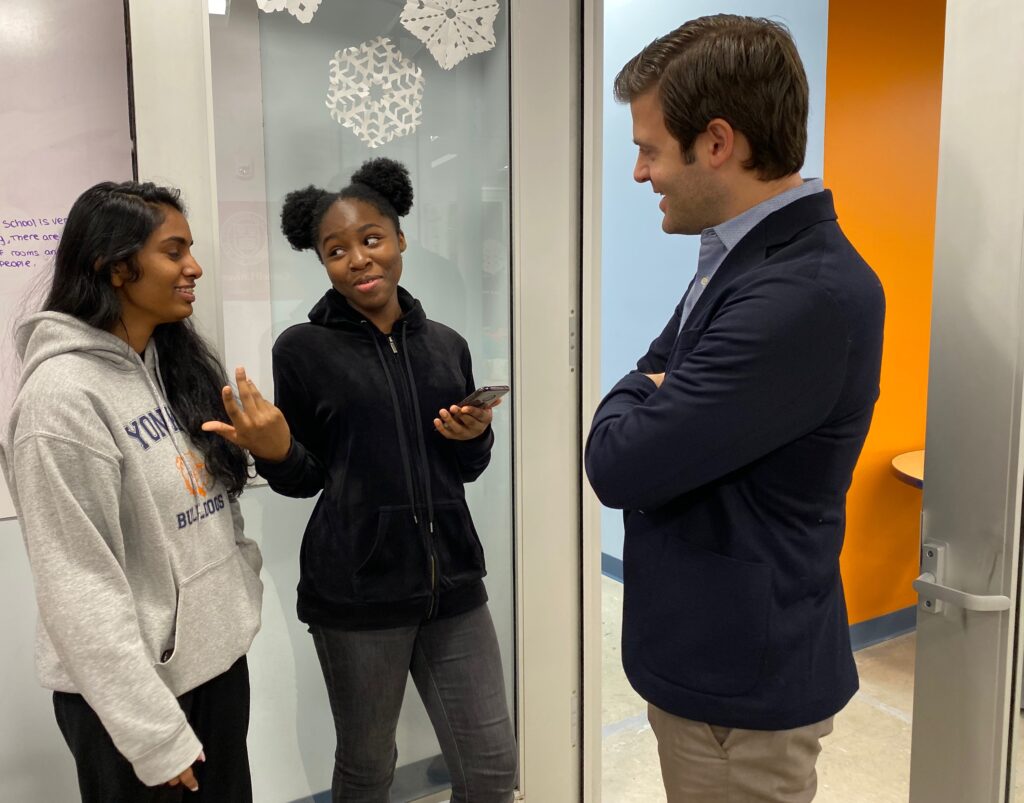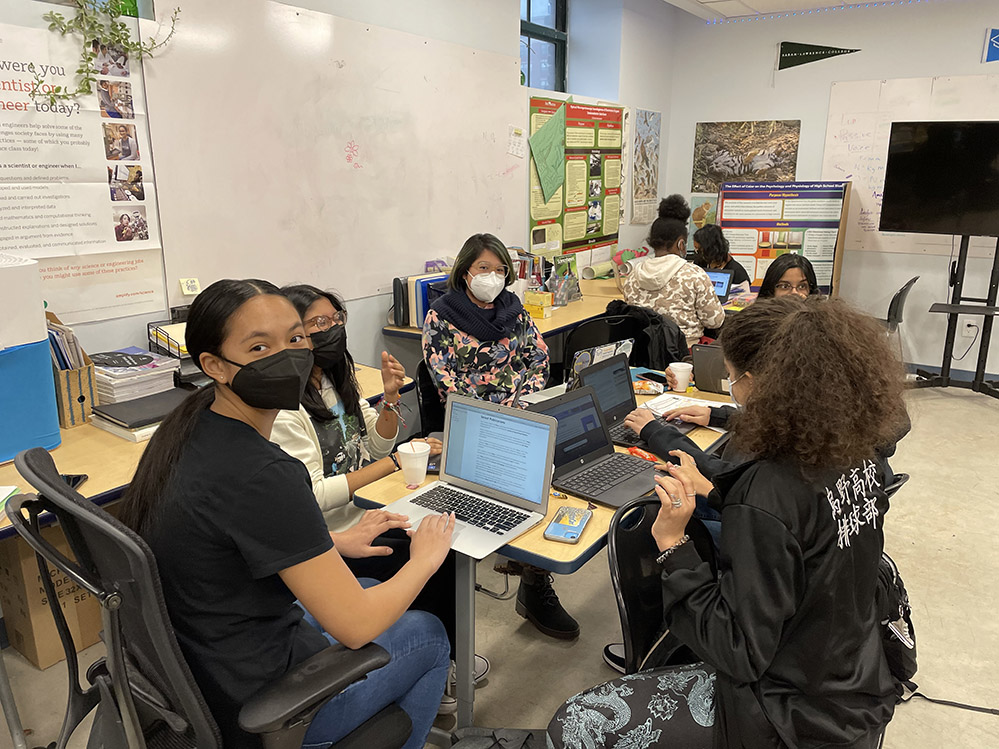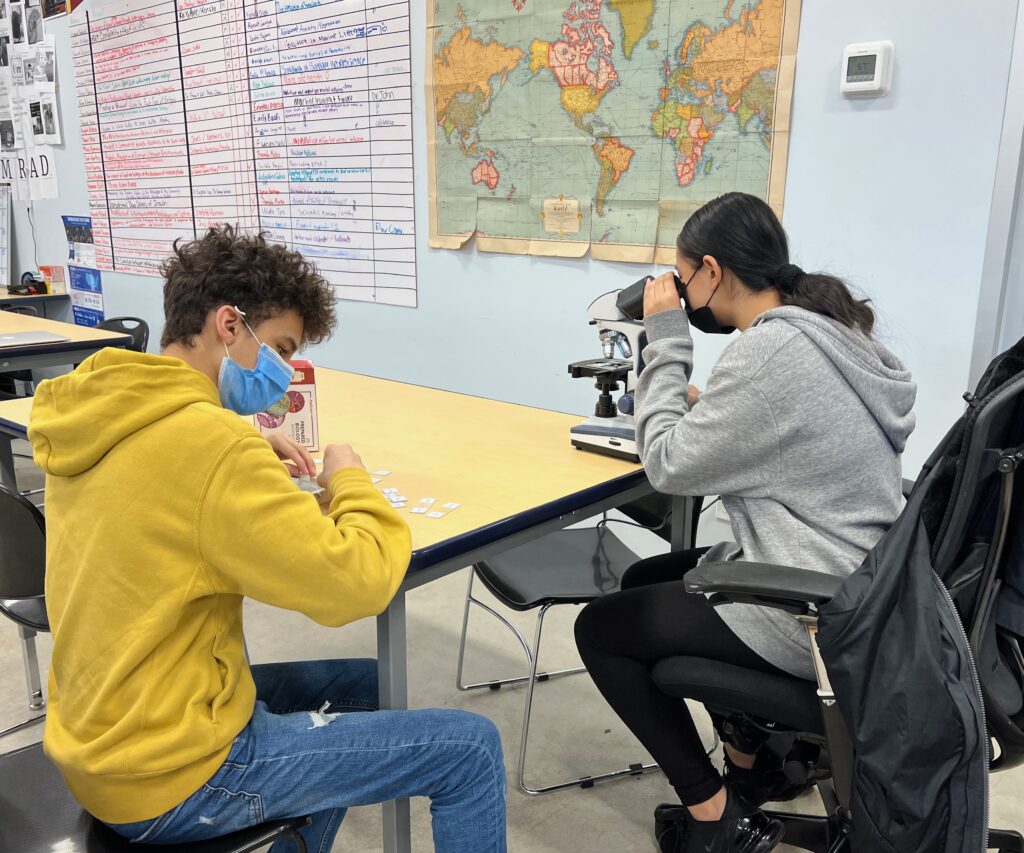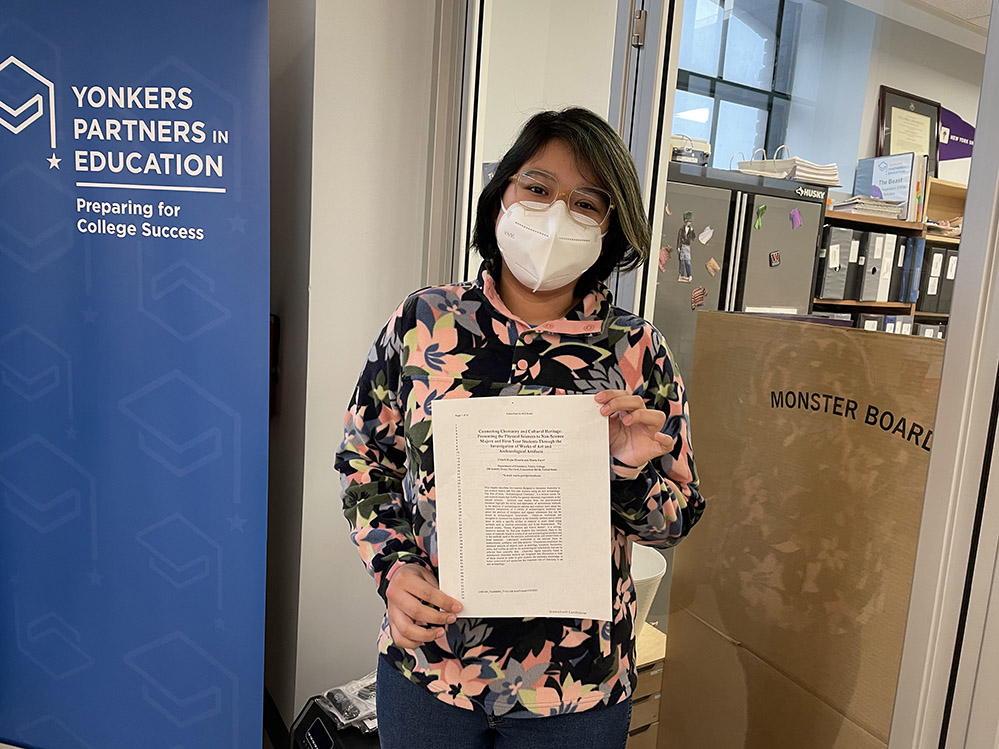By Asher Lehrer-Small, originally published by The 74 Million.
A decade ago, Samuel Wallis was teaching in a small city in the Mississippi Delta when students’ phones started going off. News of a mass shooting at Sandy Hook Elementary in Newtown, Connecticut stopped his class in its tracks.
“It was the middle of the school day … and we just had a crying session together,” recalled Wallis. “I was teaching social studies … like, I’m not going to [keep] teaching them the causes of World War II on that day.”
Looking back on that sad day now, Wallis says his emotional and unguarded experience as a Teach for America fellow strengthened those students’ trust in him and forged a classroom bond that ultimately made him a more effective instructor. It altered his approach to the classroom and the trajectory of his Mississippi work — and it was a powerful lesson about the value of deep connection that stayed with him when he later returned to the city of his childhood: Yonkers, New York.
Now he puts relationship building at the center of his work, and sets out to weave empathy and human connection into everything he does as head of Yonkers Partners in Education (YPIE), a nonprofit that’s worked for over a decade to launch low-income students of color into college. By making higher education more accessible to Yonkers teens, many of whom are the first in their family to attend, the program has sent its participants to storied universities such as Duke, Howard and Georgetown.
High school sophomore Marissa Dias originally joined YPIE (pronounced “why-pie”) seeking support in the college process, she said. But she became fast friends with another young woman who shared her sarcastic sense of humor and appreciated her nerdy jokes.
“It was very easy to feel like I was right at home immediately,” Dias told The 74. “She really is my best friend and YPIE really built our friendship.”
On an afternoon in mid-January, Wallis picks up on a T-shirt Dias is wearing that spells “Ar-C-H-Er-Y” using elements from the periodic table.
“Are you into Hawkeye?” the executive director asks, referring to the Marvel mini-series that came out over the holidays, which follows the story of a master archer from Avengers: Endgame.
“Hawkeye? Yes,” Dias nods vigorously.
“How accurate was the archery? … Were you critiquing, like, their arm wasn’t up enough?”
“Some of the things they did were pretty crazy, but I thought it was accurate,” she says laughing.

Wallis is making his way around the YPIE College Zone, finding reasons to connect with every kid. He roves from desk to desk and chats with youth about everything from the viral internet game Wordle to the TV show Money Heist.
The College Zone is a space separate from the city’s schools where students as young as ninth grade come in the afternoon for mentorship, tutoring and specialized instruction on their chosen topic area, known as a “major,” including science research, entrepreneurism and journalism. They also come to see their friends and plug back into this afternoon community. Pre-pandemic, as many as 150 high schoolers would come each day, but during COVID, attendance has generally been closer to 40, Wallis said. On this particular day in mid-January, as Omicron surged, roughly a dozen students spread out across the many tables. Some classrooms sat empty.
Even at reduced capacity, though, there are giggles and chatter. Students snack on Goldfish and drink tea. Some graduates of the program are home from college for winter break and have come by to catch up with old friends and instructors, and share some of their campus experiences.
Since joining the team in 2015, Wallis has worked to bake an ethos of community-building and belonging into the organization’s DNA, carefully designing each element of its programming to help youth feel that they are known and appreciated — and that they deserve to be there. Even seemingly small details such as classroom names, which are titled for well-known Yonkers streets like Nepperhan and McLean, are meant to add an extra touch of familiarity.
“We care about their college applications because you have to do that,” he explains. “But within that is a really important piece about relationship-building and feeling like you’re not going through it alone.”

The program is structured for continuity and long-term trust. The organization’s more than 250 adult volunteer mentors commit to working with students for at least four years, providing a consistent presence through high school.
“Everything we do with volunteers is predicated on [the idea that] longer is better,” says Wallis. “Your second time meeting [a student], you’re not going to be best friends. … It takes time.”
Many high schoolers begin YPIE in ninth grade and stay through their second year of college. When they join, they’re paired with an adult mentor and work with YPIE staff to develop individualized learning plans called “Blueprints” that take into account their skills and interests. As students approach the college application process, the organization schedules campus visits, provides SAT tutoring and guides them through applications and financial aid forms.
And the results speak for themselves. YPIE, which has a $2 million annual budget, works with over 1,200 students from the city, or about 1 in 5 Yonkers high schoolers. In 2020, 80 percent of YPIE graduates enrolled at a four-year college compared to 62 percent of peers from similar racial and socio-economic backgrounds.
The services address a pressing need in the 27,000-student district, part of the state’s Conference of Big 5 School Districts. There are about 500 students per guidance counselor in Yonkers schools — twice as many as the ratio recommended by the American School Counselor Association. YPIE’s “college readiness managers” work in every public high school in the city to help fill in the gap.
“It’s so needed,” says Saunders High School Principal Steven Mazzola. “It’s been a great partnership to be able to reach more kids … because I think it gave them more exposure as to where they could go [to college].”

Wallis spent his early years in Yonkers before his family moved to another nearby town for his middle and high school years. Many decades ago, his great-grandfather and grandfather used to work as mechanics fixing the city’s trolley cars in the very building where the YPIE College Zone is now located, he said.
But despite his deep Yonkers roots, it’s not lost on Wallis that he’s a white guy leading an organization serving students who, for the most part, don’t look like him.
“It’s probably the first thing I think about when I wake up and the last thing I think about before I go to bed,” he says.
So he’s strategic about using what he calls a practice of “non-judgemental listening” to engage with students and let them drive the conversation. In a training for YPIE coaches, Wallis shows a YouTube video titled “It’s Not About The Nail.” In it, a woman — who has a carpenter’s nail jutting out of her forehead — shares about the pain she’s been having. A man listens, and after unsuccessfully suggesting that she remove the nail, settles on a simple response of, “That sounds really hard.”
It’s a comedic example, but one that Wallis believes illustrates a central truth about the style of mentorship to which he and his organization aspire. He has no interest in what he calls “finger-wagging.” Instead, he seeks to be a guide and a support.
Good mentors talk less, listen more and keep showing up, says Wallis. The program trains coaches not to pull away when students miss meetings or don’t respond to text messages, but rather to double down. In many cases, students may be going through something difficult, and it’s when they need support from the adults in their lives the most, the organization teaches its mentors. When youth get back in touch, coaches don’t chastise them for going M.I.A., but rather celebrate their return.
“One of the things we’ve really driven and trained staff to do is, if we finally are able to bring [a student] back, it’s not, ‘Where have you been?’ but ‘I’m so happy to see you,’” explains Wallis.
It underscores the key message to students: “It’s OK to struggle. That’s when we’re gonna be there for you.”

Back at the College Zone, graduate Citlalli Rojas Huerta, who now attends Trinity College in Hartford, Connecticut has returned to tutor students in the science research major — and she’s armed with evidence of her college success. She’s holding a printed copy of her first academic publication, the result of hours of work as a research assistant on a project examining approaches professors can take toward teaching STEM.
That accomplishment, she says, is a testament to the impact YPIE has had on her life. She describes herself as having been a “shy, quiet kid,” when she joined, but opened up at YPIE thanks to Wallis’s support, giving her confidence and setting her on a trajectory to dream bigger.
“He really did help me, not just with things that were school-related, but emotionally as well,” she explains.
“The community here, it’s a beautiful thing,” adds college readiness manager Fatima Cisse, who is working with a group of three freshman girls on their anatomy homework in another classroom. Cisse herself was a student at YPIE years back and rejoined the community as a staff member during the pandemic.
“I think that’s one of the best things about YPIE is we’re just such a family,” she says.
This story was originally published as part of the “Weaving a Stronger Society – Starting in our Schools” series celebrating educators who use community to help students succeed in school and life. The series was produced by education news site The 74 Million in partnership with the Aspen Institute’s Weave: The Social Fabric Project and support from The Walton Family Foundation.
